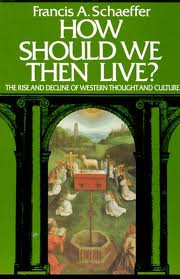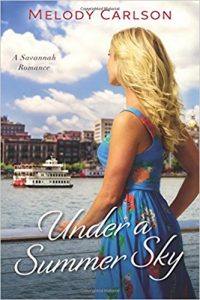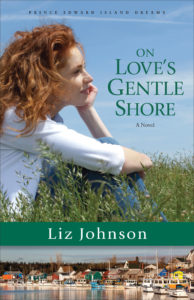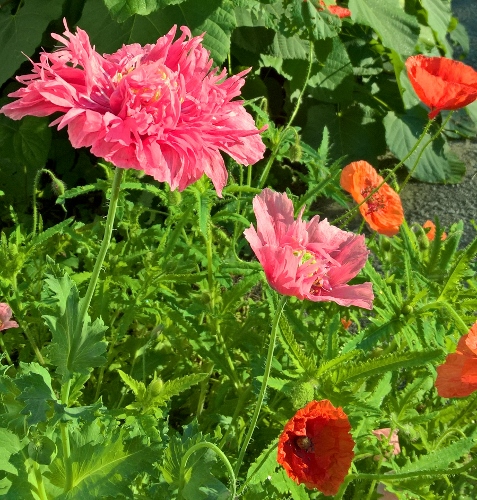
Due to health issues our home high school has gone from very intense and academic for our older three to more relaxed while still rather academic for the younger two. We no longer set long term accomplishment goals as, ‘this is how much we will do this term,’ but we set process goals like, ‘this is what we will do each day if possible.’ I constantly keep my eyes on our goals for each subject and frequently adjust methods. We cover a broad range of subjects, but have short lessons. Sometimes it seems as though we just inch along whereas we would have jogged in the past, but I just remember that being faithful in doing things little by little does work.
Even though I’m certain these home high school plans will change, perhaps they will help someone else whose teens need a relaxed yet academic high school program. (Note that links are generally to my reviews; there are no affiliate links.)
Bible—A written report on each book of the Bible is one of our high school requirements. Other aspects include earning about Christianity in life and in society. This year Miss 17 will work on Schaeffer’s How Should We Then Live? with some help from Omnibus 3. That is not an easy book so it may take a while, and I will need to prepare carefully with background information and so forth. Once that is finished, I hope to go through Pearcey’s Total Truth with her, but that is even more difficult so we will see. In terms of concepts, this may well be the most difficult aspect of her year.
Reading—We will be studying How to Read a Book, the best guide to the art of reading for teens and adults. Also, I require at least an hour of reading per day—fiction, nonfiction, subject-related, or just for fun. (In the past I needed to limit the amount of reading time; now I need to encourage reading and limit screen time instead.)
Church history—In the fall we will focus on Reformation times using The Reformation by Nichols. We will read at least one substantial book about Luther (I currently have four on my reviewing pile) and also use some of Simonetta Carr’s informative biographies for a more in-depth reminder of those days. I hope we will be able to listen to a few church history talks. If we get stuck in the Reformation for the whole year, that’s fine. If not, we will also look at early church history beginning with Bede (via Ambleside Online) and then Eusebius’s The Church History and Athanasius’s On the Incarnation (as suggested here) with Omnibus 2. I would love to do some timeline work with the girls as well.
Math—In the past we’ve used Key to Algebra and Key to Geometry as an introduction to the topics and then focused on Singapore’s New Elementary Math, an advanced math program, finishing up with its New Syllabus Additional Math and/or Life of Fred Calculus. We are considering switching to Saxon Math instead because it is apparently easier though also solid.
Literature—BJUP Literature texts for grade 9 and 10 are good introductions to literature, and that is what Miss 14 will continue to work on. I’m still planning Miss 17’s American and Canadian literature course. For Miss 17’s American lit, we will use selections from American Literature (BJUP), Omnibus 3, Omnibus 6, and sevensistershomeschool.com, with Nancy Wilson’s Reading with Purpose as a spine. I’m also intrigued by the Center for Lit’s Socratic method and could perhaps adapt that for Canadian literature, but as it is ‘Christian friendly’ but not ‘Christian’, that might not work for us. (I will be watching their free seminar on King Lear on August 14 to help me decide.)
Writing and Composition—Jensen’s Format Writing is a good fit for Miss 17 and she will continue to use it. Her Bible reports follow the five paragraph report format. Since Miss 14 is still not able to spend much time learning due to her concussion last winter, I do not expect to emphasize writing this year. If we focus on essential learning (reading, math, science) and discussion she will build a solid background for writing once she is well again. We will do grammar via Daily Grams and the Rod and Staff program, and spelling and vocabulary using an old Reader’s Digest book, How to Increase Your Word Power.
Science—Apologia Biology and Chemistry are good courses and we will continue to go through them slowly. With its careful and humorous drawings, Macauley’s The Way We Work is a brilliant accompaniment to Biology. The girls also do a project and some related reading for each science course. (Elsewhere I have reviewed Apologia high school science materials, discussed course levels, and talked about how to tweak the courses.)
Logic—Miss 14 will continue on in the Building Thinking Skills books and Miss 17 will finish Wilson’s Introduction to Logic and carry on with James Madison Critical Thinking.
Languages—For French the girls hope to finally, finally finish French is Fun 1, and maybe move on. For Dutch, Miss 17 will continue with Help!, a wonderfully thorough course used in the Netherlands for adult foreigners, as well as with simple stories and conversation. Miss 14 often listens in to the stories and picks up a lot that way, but I do hope to add casual Dutch to her learning as well.
Accounting—Miss 17 is studying Professor in a Box Accounting. It is a good course, clear, practical, thorough, and completely self-contained. I do not need to know the topic at all which is perfect because I don’t.
Physical Education—Miss 17 still needs a bit of theory to finish the one required credit; Miss 14 is avidly reading Temertzoglou’s Kinesiology (very politically correct), learning about muscles, and designing exercise programs.
Art—Miss 14 is always taking nature photos. I would also like to do some nature drawing with both girls—this would contribute to their fine arts credit as well as their biology project. Above all, noticing God’s creation is an important way of learning about him, as he has shown in the Bible numerous times.
History and geography—Both Canadian and world history will be on the back burner this year as we focus on church history. So will geography. Still, that never means learning in these areas won’t happen since we focus a lot on reading to learn history as well as geography.
Memory Work—
- Review: texts, Psalms, hymns, catechism portions, grammar facts (English, Dutch, French), Canadian Prime Ministers, historical dates, geography facts, literary terms.
- Learn: “How Great Thou Art”, 3 poems, several song stanzas, church history timeline, methods from How to Read a Book, vocabulary (English, Dutch, French), Latin and Greek roots of words related to biology. Once I read a poem about the contents of each book of the Bible; if I can find it again, we’ll all learn that, too.
Volunteering and work—Miss 17 works at an ethnic store and we are looking for a suitable volunteer opportunity that will not interfere too much with school and work. Miss 14 volunteers with therapeutic riding, is hoping to sell eggs once her chicks start laying, and gardens for the neighbors.
Dreams—If there is one thing I’ve learned over the years, it is this: trying to do too much leads to disaster. So here I list the things I used to actually try to do, but now will fit in only if it works easily. I would love to listen to Diana Waring’s funny and insightful history talks. (Eventually the girls will finish both volumes of Streams of Civilization, but those work best for teens who already have a decent grasp of history.) I hope to take our old cassette tapes of great musicians and figure out a way to use them in the car. Ideally we would read poetry aloud each day and do picture and nature study each week. It would be fun to finish History of English Literature for Boys and Girls although that can wait until we learn British history. I would also like to incorporate some TED or TEDex talks but they are often not Christian; perhaps some talks from Augustine College and various creation resources will do instead.
Mommy Training—In the past our teens did a fair bit of independent work. That approach is not ideal right now, so I need to know the material well enough myself to teach on the fly, unless I want to spend each evening preparing for the next day. Of course, that is a challenge for this old mommy brain, but a good one. I hope to write about this soon.
We also have several subjects that casually carry on throughout several high school years—history (Canadian, world, church, art, music, science), civics, geography, physical education, and others. This works well for the girls, but I need to be extra careful to record everything appropriately.
—
I have collected some of our curriculum plans for other years , which you may find helpful.
If you need to adapt your schooling because your teen is not doing well, please read “When Your Teen Can No Longer Focus”.
—
If you enjoyed this article, you might want to follow me on Google+ where I often mention helpful or interesting ideas, or connect with me on GoodReads where I (eventually) share what I read.
This article is linked to Finishing Strong and Raising Homemakers.














